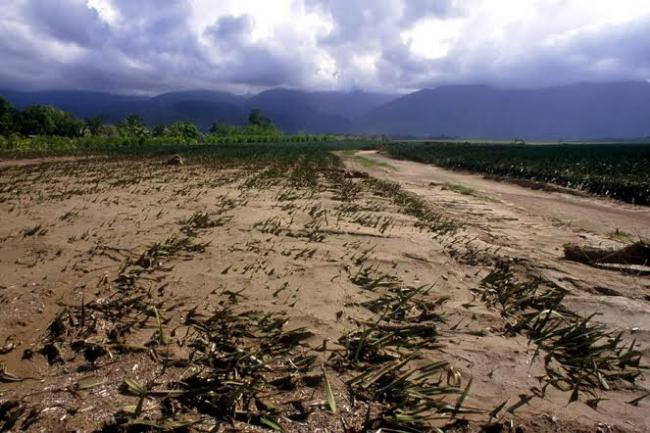04 Nov 2015, 05:26 am Print

“Increased frequency and intensity of extreme weather, rising temperatures and sea levels, as well as floods and droughts have a significant impact on the right to food,” said Hilal Elver, the UN Special Rapporteur on the right to food, in a news release.
“All these climate incidents will negatively impact on crops, livestock, fisheries, aquaculture and on people’s livelihoods,” she added, warning that responding to the food demand through large-scale production oriented agricultural models is not the right solution.
Elver also underlined that there is a need for a major shift from industrial agriculture to transformative systems such as agro-ecology that support the local food movement, protect small holder farmers, respect human rights, food democracy and cultural traditions, and at the same time maintain environmental sustainability and facilitate a healthy diet.
“Those who have contributed the least to global warming are the ones set to suffer the most from its harmful effects,” she stressed.
The Special Rapporteur made her recommendations in advance of the UN climate change conference, known as COP 21 due to take place in Paris from 30 November to 11 December.
“Civil society pressure is mounting on the parties of the UNFCCC to achieve results in Paris by adopting a human rights approach to the climate change agreement that will respect, protect and fulfil human rights of all persons, and especially those most vulnerable. Any agreement must include a clear commitment by all relevant parties to ensuring climate justice and food security for all,” Elver said.
“As jointly stated by all special procedure mandate holders on World Environment Day in June, Governments should ?make sure that human rights are at the core of climate change governance.’”
Meanwhile, the Special Rapporteur highlighted her concerns surrounding the impact of climate change on the right to food in her recent report presented to the UN General Assembly’s Third Committee in October.
Independent experts or special rapporteurs are appointed by the Geneva-based UN Human Rights Council to examine and report back on a country situation or a specific human rights theme. The positions are honorary and the experts are not UN staff, nor are they paid for their work.
Photo: FAO/L. Dematteis
- Ocean in crisis: 50% of coral reefs destroyed during devastating 2014–2017 heatwave!
- Extreme heat to engulf half the world by 2050, Oxford study alerts
- Twice the heat, twice the danger! Arab region faces explosive climate threat, warns UN
- When finance flows, ambition grows: The critical COP30 message the world can’t ignore
- Breathing polluted air causes more than 4.5 million premature deaths every year, say UN climate experts





-1763561110.jpg)
